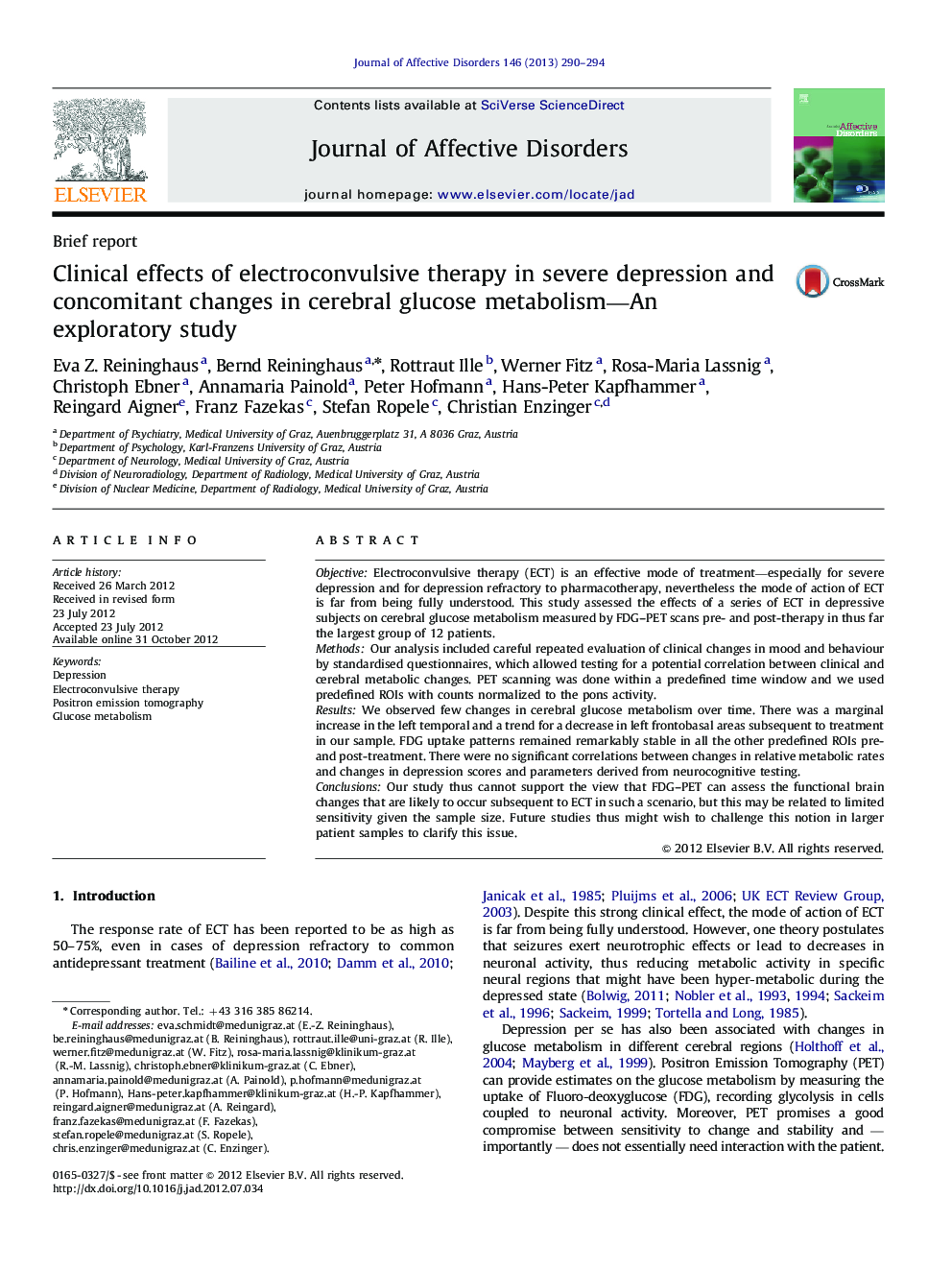| Article ID | Journal | Published Year | Pages | File Type |
|---|---|---|---|---|
| 4186278 | Journal of Affective Disorders | 2013 | 5 Pages |
ObjectiveElectroconvulsive therapy (ECT) is an effective mode of treatment—especially for severe depression and for depression refractory to pharmacotherapy, nevertheless the mode of action of ECT is far from being fully understood. This study assessed the effects of a series of ECT in depressive subjects on cerebral glucose metabolism measured by FDG–PET scans pre- and post-therapy in thus far the largest group of 12 patients.MethodsOur analysis included careful repeated evaluation of clinical changes in mood and behaviour by standardised questionnaires, which allowed testing for a potential correlation between clinical and cerebral metabolic changes. PET scanning was done within a predefined time window and we used predefined ROIs with counts normalized to the pons activity.ResultsWe observed few changes in cerebral glucose metabolism over time. There was a marginal increase in the left temporal and a trend for a decrease in left frontobasal areas subsequent to treatment in our sample. FDG uptake patterns remained remarkably stable in all the other predefined ROIs pre- and post-treatment. There were no significant correlations between changes in relative metabolic rates and changes in depression scores and parameters derived from neurocognitive testing.ConclusionsOur study thus cannot support the view that FDG–PET can assess the functional brain changes that are likely to occur subsequent to ECT in such a scenario, but this may be related to limited sensitivity given the sample size. Future studies thus might wish to challenge this notion in larger patient samples to clarify this issue.
